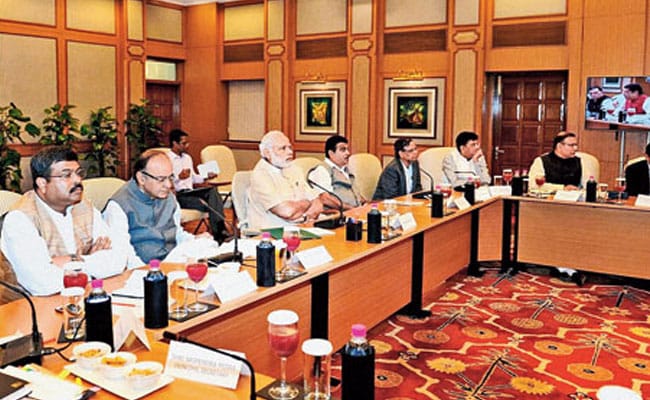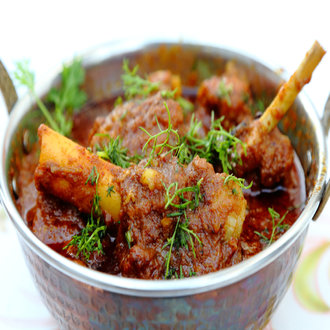If we all come together then we can make a New World or Society, where no one can feel self alone, and we can do it by a little bit ways, to sacrifice for others, make a proud society. The God has given us a beautiful world, its our duties to maintain it safe clear. So, Lets come together to help them, whom really need.
Saturday, 29 October 2016
Friday, 29 July 2016
Listen to an Ad and Make Free Calls With This App

HIGHLIGHTS
- Nanu lets you make free calls to landlines and mobiles
- You earn free credits every day to pay for calls
- You can get more credits by downloading other apps
There is no shortage of apps you can use to call other people in order to cut down on your phone bill, but most of them have a simple problem - they require both users to have the same app installed.
There are also a number of good apps that allow you to make voice calls for a fee, but these also come with some problems that can be solved, and if you're calling a telephone number, you're usually still paying some amount for the privilege.
Enter Nanu, a voice calling app that claims to use much less bandwidth than competing products, and comes with a feature that makes calls completely free.
The way it works is simple - Nanu gives you a few free credits every day, and you can use these to pay for phone calls. The credit it gives you is not very high, but you can also perform actions like downloading other apps to 'earn' more free credits. In practice, it's similar to apps that give you free recharges to pay for mobile data, but obviously in this case the credit can only be used with Nanu.
Thankfully, the Nanu app itself is nicely laid out, easy to use, and the call quality is good too, so it isn't a big issue. Users can call any landline or mobile number using the free credits provided by the app.
The catch is that the free credits don't carry forward from one day to the next - so, for example, you can't build a stockpile of free credits over the week to blow up in an hours-long call to the US on the weekend.

The interface of the app is pretty simple - when you launch the app, you'll see recent calls, and you can enter Nanu's dialer to call anyone. You'll see the credit balance and how many minutes of talktime this works out to, directly from the dialer.
Through the menu, you can see the free credit, and you can go to the Free Credits menu to earn more credits. For example, downloading the Amazon app got us five free credits, while playing a Web game was worth 49 free credits.
Testing the app across 2G, 3G, and 4G networks, the call quality remained extremely clear. Even on 2G connections, you could hear the other person very clearly. Nanu claims that it uses 80 percent less data than other VoIP platforms such as Skype and Viber.
The company states that Nanu uses 105kb of data per minute, and when you call someone, you'll also listen to an ad while waiting for the other person to pick up the call. Calling within India costs you 2 credits per minute, and you can look up the rates for other numbers.
Wednesday, 29 June 2016
7वें वेतन आयोग की सिफारिशें कैबनेट ने मंजूर की, 23 प्रतिशत से अधिक होगी कर्मचारियों की वेतन वृद्धि

7वें वेतन आयोग पर मोदी कैबिनेट की बैठक आज (फाइल फोटो)
खास बातें
- नई सैलरी 1 जनवरी से 2016 से लागू, एरियर मिलेगा
- 1 करोड़ से ज्यादा सरकारी कर्मचारियों-पेंशनधारियों को फायदा
- आयोग की सिफारिशों से ज्यादा वेतनमान देने को मंजूरी
आज शाम 5.30 बजे वित्तमंत्री अरुण जेटली इस बारे में औपचारिक रूप से बयान देंगे। जेटली ने एक बयान देकर सरकारी कर्मचारिओं और अफसरों को बधाई दी है। उन्होंने इस बढ़ोतरी को ऐतिहासिक करार दिया है।
एक अधिकारी ने कहा कि ग्रेडेड इंक्रीज इन बेसिक सैलरी पर कैबिनेट ने चर्चा की है। ऐसा माना जा रहा है कि अधिकतर लोगों के लिए 20 प्रतिशत की बढ़ोतरी हुई है। कुछ पदों पर 25 फीसदी की बढ़ोतरी पर चर्चा हुई है।
मिली जानकारी के अनुसार, यह बढ़ा वेतनमान 1 जनवरी 2016 से लागू होगा। अब करीब 15-25 दिनों में सभी विभाग अपने अपने कर्मचारियों के वेतनमान तय कर लेंगे और कहा जा रहा है कि जुलाई में मिलने वाले वेतन में पूरा एरियर और बढ़ा वेतन दे दिया जाएगा।
बीजेपी प्रवक्ता शाहनवाज हुसैन ने एक ट्वीट कर जानकारी दी है कि सरकारी कर्मचारी को 23 प्रतिशत से अधिक सैलरी की वृद्धि मिलेगी।
Cabinet clears final payout based on #7thPayCommission . Government employees to get 23% plus increment in salary.— Shahnawaz Hussain (@ShahnawazBJP) June 29, 2016
वेतन वृद्धि के ऐलान के बाद 50 लाख सरकारी कर्मचारी और 58 लाख पेंशनधारियों के हाथों में ज्यादा पैसा आएगा। कहा जा रहा है कि इस वेतन वृद्धि से रीयल एस्टेट सेक्टर और ऑटोमोबाइल सेक्टर में उछाल आएगा।
आरबीआई ने एक आकलन में अप्रैल में कहा था कि अगर आयोग की रिपोर्ट को ऐसे ही लागू किया गया तो 1.5 फीसदी महंगाई बढ़ जाएगी। वैसे कैबिनेट बैठक में शॉप एंड एस्टैब्लिसमैंट बिल पर चर्चा हुई है। (सातवें वेतन आयोग पर रवीश कुमार का ब्लॉग : सैलरी बढ़ने को तर्कबुद्धि और तथ्यबुद्धि से देखिए... )
इस बढ़े वेतनमान का फायदा 1 करोड़ से ज्यादा सरकारी कर्मचारियों और पेंशनधारियों को मिलेगा। इससे पहले सातवें वेतन आयोग ने अपनी रिपोर्ट में सरकारी कर्मचारियों की बेसिक सैलरी में 14.27 फीसदी बढ़ोत्तरी की सिफारिश की थी। (7वें वेतन आयोग की रिपोर्ट का वह सुझाव जिस पर कई कर्मचारियों को होगी आपत्ति!)
साथ ही आयोग ने एंट्री लेवल सैलरी 7,000 रुपये प्रति महीने से बढ़ाकर 18,000 रुपये प्रति महीने करने का प्रस्ताव सरकार के सामने रखा। (केंद्रीय कर्मचारियों को 7वें वेतन आयोग का लाभ होगा, पढ़ें - क्या थीं आयोग की सिफारिशें)
इनकी बढ़ेगी सैलरी
-सातवें वेतन आयोग ने अपनी रिपोर्ट में सरकारी कर्मचारियों की बेसिक सैलरी में 14.27 फीसदी बढ़ोत्तरी की सिफारिश की थी।
-माना जा रहा है कि कैबिनेट बैसिक सैलरी में 18 से 20 फीसदी तक की बढ़ोत्तरी के प्रस्ताव को मंजूरी दे सकती है।
-इसका फायदा 50 लाख सरकारी कर्मचारियों और 58 लाख पेंशनधारियों को मिलेगा।
-नई सैलरी 1 जनवरी 2016 से लागू होगी, यानी सरकारी कर्मचारियों को छह महीने का एरियर मिलेगा।
-कैबिनेट तय करेगी कि एरियर एक मुश्त दिया जाए या किश्तों में दिया जाए।
-सातवें वेतन आयोग ने इंट्री लेवल सैलरी 7,000 रू प्रति महीने से बढ़ाकर 18,000 रुपये प्रति महीने करने के प्रस्ताव सरकार के सामने रखा।
-कैबिनेट सचिव की मौजूदा सैलरी 90,000 से बढ़ाकर 2.50 लाख रुपये करने की सिफारिश की है।
1 जनवरी 2016 से लागू होंगी सिफारिशें
छठा वेतन आयोग 1 जनवरी, 2006 से लागू हुआ था और उम्मीद है कि सातवें वेतन आयोग की सिफारिशें 1 जनवरी, 2016 से लागू होंगी और कर्मचारियों को एरियर दिया जाएगा। आमतौर पर राज्यों द्वारा भी कुछ संशोधनों के साथ इन्हें अपनाया जाता है। कहा जा रहा है कि नए वेतन ढांचे में सातवें वेतन आयोग ने छठे वेतन आयोग द्वारा शुरू की गई 'पे ग्रेड' व्यवस्था खत्म कर इसे वेतन के मैट्रिक्स (ढांचे) में शामिल कर दिया है और कर्मचारी का ओहदा अब ग्रेड पे की जगह नए ढांचे के वेतन से तय होगा।
सलाना 3% वेतन बढ़ाने की सिफारिश
वित्त मंत्री अरुण जेटली को सौंपी गई वेतन आयोग की रिपोर्ट में मौजूदा कर्मचारियों के मूल वेतन में 16%, भत्तों में 63% और पेंशन में 24% इजाफे की सिफारिश की गई है। न्यायमूर्ति एके माथुर की अगुवाई वाले इस सातवें वेतन आयोग ने सरकारी कर्मचारियों का न्यूनतम वेतन 18 हजार और अधिकतम 2.50 लाख रुपये तय करने की सिफारिश की है। इसके अलावा आयोग ने केंद्रीय कर्मचारियों के वेतन में सालाना तीन फीसदी वृद्धि की भी सिफारिश की है।
सरकारी खजाने पर सलाना 1.02 लाख करोड़ का बोझ
आयोग की सिफारिशें जस की तस लागू करने पर सरकारी खजाने पर 1.02 लाख करोड़ रुपये का सालाना बोझ आएगा, जिसमें 28,450 करोड़ रुपये से अधिक का बोझ रेलवे बजट और बाकी 73,650 करोड़ रुपये आम बजट पर जाएगा।
Gosht Nihari





Gosht Nihari
Chef | : | Shahnawaz Qureshi |
Recipe Servings | : | 2 |
Restaurant | : | JW Marriott Hotel |
Recipe Cook Time | : | 30 Minutes |
| .................................................................. | ||
Lamb cooked in an array of traditional spices and finished with kewda water to make it a delightful dinner-party dish.
Ingredients
- 1 cup lamb baby with bones
1 tsp mace
1 bay leaf
2 pods green cardamom whole
1 tsp cloves
2 tsp black cardamom
2 tsp garlic fresh
1 tsp ginger fresh
1 tsp garam masala
1 Tbsp coriander powder
1 tsp yellow chilli powder
1 tsp turmeric powder
1 tsp cumin powder
1 Tbsp fried onions
1/2 cup curd
Salt to taste
1 Tbsp ghee
1 cup lamb stock
1 tsp gram flour
1 tsp kewda water
Method
Boil lamb in a heavy bottomed pan and remove the scum.
In a hot pan, add ghee, whole garam masala and ginger garlic paste.Stir till the paste is cooked. Add some fried onions.
Put turmeric powder, cumin powder, yellow chilli powder and coriander powder and sauté with the boiled lamb.
Add Lamb stock to it and let it cook for sometime till the lamb gets tender.
Add nicely whisked curd and add diluted gram flour to the gravy.
Season with salt.
Add kewda water to the gravy. And serve hot.
In a hot pan, add ghee, whole garam masala and ginger garlic paste.Stir till the paste is cooked. Add some fried onions.
Put turmeric powder, cumin powder, yellow chilli powder and coriander powder and sauté with the boiled lamb.
Add Lamb stock to it and let it cook for sometime till the lamb gets tender.
Add nicely whisked curd and add diluted gram flour to the gravy.
Season with salt.
Add kewda water to the gravy. And serve hot.
How to Make the
Perfect Cup of Masala Chai
There is nothing more
comforting than hands wrapped around a cup of 'chai'.
Summer or winter, spring or autumn, the one thing that remains constant in my daily routine, is waking up to a cup of tea. It is my way to kick-start the day, as it is for millions of Indians in the country and around the world. And as much as I love my green tea at work, it really is good ol' chai, the black tea variety that I need to wake up to each morning. Come monsoon, and chai becomes something of a necessity. Chai and pakodas while watching the raindrops fall pitter patter, could anything be more poetic?
Indian streets are lined with street-food, the items changing across states and boundaries. In Punjab, you get piping hot samosas whereasLucknow loves its dahi jalebi. Delhi goes crazy over chaat and chole bhature while Mumbai and Pune swear by vada pav and misal. The one thing that remains constant, when you travel across North, West andCentral India though, are the chai walas. South India may be biased towards its filter coffee but a large part of the country swears by tea. In Indian households, tea is usually not offered to children. My tryst with chai started in college, when we would slink off to the local chai kitli/ tapri (stall) right outside the college gates. It is over a cutting chai that I forged great friendships, broke a few hearts and spent many evenings in solitude, a time for introspection.
Summer or winter, spring or autumn, the one thing that remains constant in my daily routine, is waking up to a cup of tea. It is my way to kick-start the day, as it is for millions of Indians in the country and around the world. And as much as I love my green tea at work, it really is good ol' chai, the black tea variety that I need to wake up to each morning. Come monsoon, and chai becomes something of a necessity. Chai and pakodas while watching the raindrops fall pitter patter, could anything be more poetic?
Indian streets are lined with street-food, the items changing across states and boundaries. In Punjab, you get piping hot samosas whereasLucknow loves its dahi jalebi. Delhi goes crazy over chaat and chole bhature while Mumbai and Pune swear by vada pav and misal. The one thing that remains constant, when you travel across North, West andCentral India though, are the chai walas. South India may be biased towards its filter coffee but a large part of the country swears by tea. In Indian households, tea is usually not offered to children. My tryst with chai started in college, when we would slink off to the local chai kitli/ tapri (stall) right outside the college gates. It is over a cutting chai that I forged great friendships, broke a few hearts and spent many evenings in solitude, a time for introspection.
From then to now, many things have changed. But the one thing that remains constant, is my love for a perfectly brewed cup of tea. Every house has its own brew, some prefer half milk-half water, whereas others prefer it to be less milky. The temperature it is boiled at, how long it is brewed, how much sugar is added in, each of these variables ensures that the tea that is made in each house is different and unique. Here are a few tricks you can have up your sleeve to make a fabulous cup of tea, when the guests drop in, or just for yourself. Experiment with these 5 ingredients, by themselves or as a combination with each other. And we assure you, your morning chai will never be the same again.
1. Tulsi: It is not uncommon
to find tulsi growing in an Indian household. This
common herb has great cultural significance but it
is the flavour that I love. A few freshly plucked tulsi leaves (2-3 per cup) do
wonders for the taste of your tea. Add them in a minute or so after you add the
tea leaves and boil, so that the flavour integrates with the chai.
2. Elaichi (Green Cardamom): Elaichi has a refreshing flavour that can boost an ordinary cup of tea. For one cup, 1-2 pods are enough, too many makes it overpowering. You could crush the seeds and add, or just crack the pod to open it up a little and add while boiling the tea.
3. Black Peppercorn: In all honesty, I had never tried black peppercorn to my tea until I saw it on a menu one day in one of the recently opened chai cafes. It had my attention, especially as my favourite remedy for a sore throat is boiled peppercorn water. Since then, whenever my throat is hurting a little, I make sure I add a few peppercorns while making my morning tea as well.
4. Cinnamon (Dalchini): The smell of cinnamon is almost magical. This aroma and the warmth of this much-loved spice can take your chai-game up a notch. However, cinnamon is a strong spice, use sparingly. As it gives warmth to the body, it is also a great spice to use in winters.
5. Ginger: How can any chai article be complete without the king of chai-spices - ginger. This one is a personal favourite. I like to crush the ginger a little and add into the water before it starts boiling so that the juices have enough time to add flavour. It is great for sore throats too. Or just to bring a smile on your face, urging you to have a great day ahead.
How to Make the Perfect Cup of Masala Chai
My favourite recipe for masala chai is one
that my mother-in-law makes. It is honed by instinct and perfected by
experience.
For 2 cups
Ingredients:
Ingredients:
1.5 cup of Water
1 cup of Milk
1.5 tsp of Black tea
1 tsp of Ginger (grated)
5-6 Tulsi leaves
Method:
1. In a pan, boil the water and milk together.
Add the freshly grated ginger.
2. When it starts boiling (and not before
that), add the tea leaves.
3. Boil on low heat for around 2 minutes. Add
tulsi and stir.
4. Continue boiling on low heat till the colour
starts changing and the consistency becomes a little less watery (another 2-3
minutes).
5. Strain and serve hot.
Subscribe to:
Posts (Atom)







